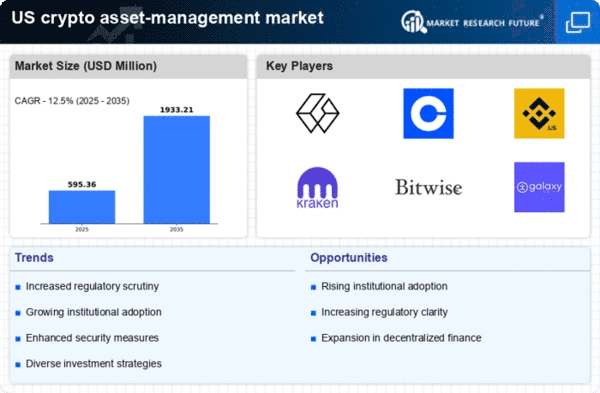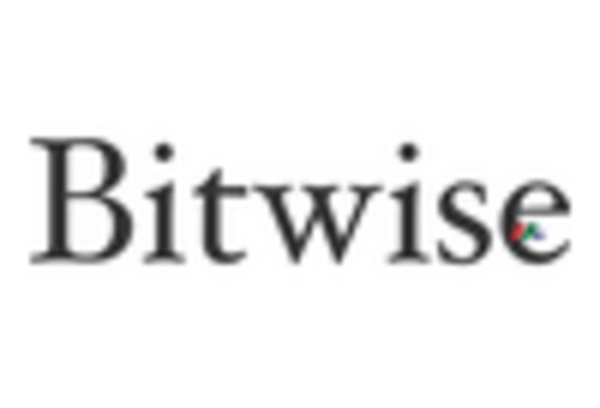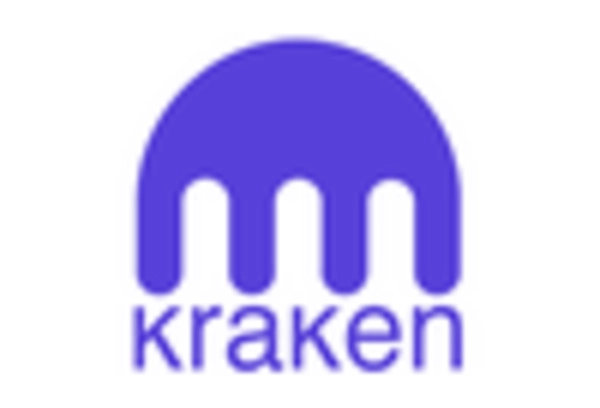Regulatory Clarity
The evolving regulatory landscape surrounding cryptocurrencies is playing a crucial role in shaping the crypto asset-management market. As regulatory bodies provide clearer guidelines, firms are better equipped to navigate compliance challenges. This clarity is likely to encourage more participants to enter the market, as it reduces uncertainty and fosters a more stable investment environment. Recent surveys indicate that 70% of asset managers believe that clearer regulations will enhance their willingness to invest in cryptocurrencies. Consequently, the crypto asset-management market may experience accelerated growth as regulatory frameworks become more defined.
Enhanced Security Measures
Security concerns have historically plagued the crypto asset-management market, but advancements in security technologies are fostering greater confidence among investors. The implementation of multi-signature wallets, cold storage solutions, and robust encryption methods are becoming standard practices. According to industry reports, firms that prioritize security have seen a 25% increase in client retention rates. This focus on security not only protects assets but also enhances the overall reputation of the crypto asset-management market. As security measures continue to evolve, they are likely to attract more institutional and retail investors, thereby driving market growth.
Growing Retail Participation
The increasing interest from retail investors in the crypto asset-management market appears to be a significant driver. As more individuals seek to diversify their portfolios, the demand for accessible and user-friendly asset management solutions has surged. Recent data indicates that retail investment in cryptocurrencies has risen by approximately 30% in the past year alone. This trend suggests that asset management firms are likely to adapt their offerings to cater to this demographic, potentially leading to innovative products and services tailored for retail clients. The crypto asset-management market is thus witnessing a shift towards more inclusive investment strategies, which may further stimulate growth.
Innovative Financial Products
The development of innovative financial products tailored to the crypto asset-management market is driving interest and participation. Products such as crypto ETFs, index funds, and structured products are becoming increasingly popular among investors seeking exposure to digital assets. The introduction of these products is expected to attract a broader range of investors, including those who may have previously been hesitant to engage with cryptocurrencies. Market analysts project that the crypto asset-management market could see a growth rate of 40% over the next five years, largely fueled by the introduction of these innovative offerings.
Increased Institutional Investment
Institutional investors are increasingly recognizing the potential of cryptocurrencies as a viable asset class. The influx of institutional capital into the crypto asset-management market is reshaping the landscape, with hedge funds, family offices, and pension funds allocating a portion of their portfolios to digital assets. Recent estimates suggest that institutional investment in cryptocurrencies could reach $1 trillion by 2026. This trend indicates a growing acceptance of cryptocurrencies among traditional financial institutions, which may lead to more sophisticated asset management strategies. The crypto asset-management market is thus poised for substantial growth as institutional players continue to enter the space.
















